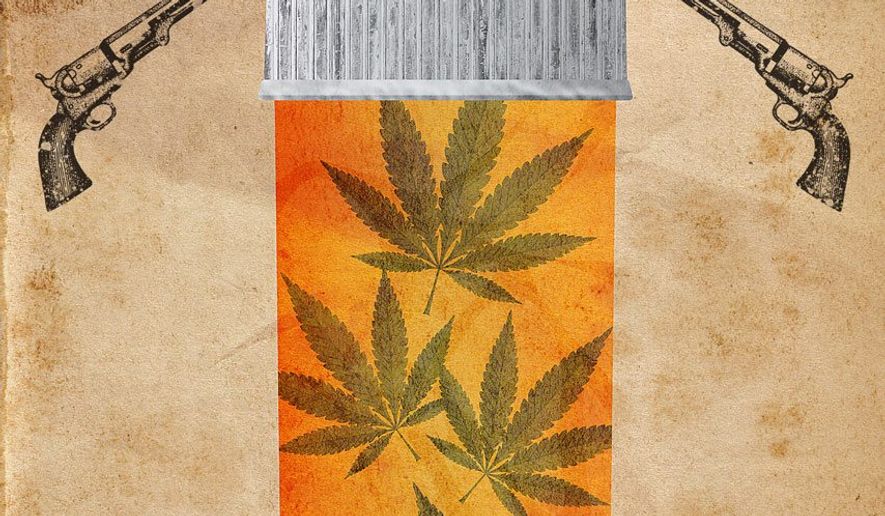OPINION:
Advocates for and against the legalization of marijuana for recreational use have been sparring for decades in part at least because there are merits on both sides of the argument, but the same cannot be said about whether doctors should be free to prescribe marijuana for medical purposes.
Some states like California and Colorado have legalized the use of the drug for recreational as well as medical, but 30 other states have legalized it for medical use only. The Drug Enforcement Administration has, however, thus far refused to de-list marijuana as a Schedule I drug, which means that people in states where it is legal to get a prescription to use it as a pain killer are criminals in the eyes of the feds.
The federal government classified marijuana as a Schedule I drug nearly 50 years ago, classifying it as more dangerous than other controlled substances such as morphine, OxyContin and Vicodin. These are Schedule II drugs and can be legally prescribed by a physician. The DEA has the authority to reclassify marijuana by regulation, but has yet to do so, prompting some in Congress to support legislation that will reclassify it so that it too can be prescribed.
The Schedule I classification has caused real problems for gun owners in states that have legalized its use for medical purposes because the Bureau of Alcohol, Tobacco, Firearms and Explosives defines anyone with a medical marijuana prescription as an admitted drug user prohibited by definition from owning, possessing or using a firearm. In some states federal law enforcement officers have threatened to go after either gun owners with a prescription or firearms dealers or private sellers who dare to sell them guns.
The late Lyn Nofziger, one of President Ronald Reagan’s closest aides, argued for the legalization of medical marijuana when he and his family discovered that it was the only thing that seemed to ease the suffering of his cancer-stricken daughter. He joined others on the right and left as well as medical experts urging the states and the federal government to allow physicians to prescribe marijuana for patients who could benefit from its use, believing that like morphine and other controlled substances marijuana should be available by prescription to those who might benefit from its use.
The refusal of the federal government to accede to the judgment of the states on the issue has created problems for tens or even hundreds of thousands of gun owners who are being forced to either trade their Second Amendment rights for a chance to live pain-free or risk prosecution and imprisonment.
A Nevada woman seeking to buy a gun from a Carson City retailer in 2011 was turned down because the gun store’s owner knew she had recently received a medical marijuana prescription and had days earlier received a ATF notice warning that licensed dealers “may not transfer firearms or ammunition to” holders of medical marijuana prescriptions. She went to court, but was finally told that as long as the federal government lists marijuana use in any form as a dangerous drug, those using it can be classified as “prohibited persons” with no Second Amendment right to buy or possess a firearm.
Last year, the Honolulu police sent every registered gun owner in the city who had been given a marijuana prescription notice that they would have to surrender their guns and ammunition to the police within 30 days. The notice was later rescinded, but was a stark reminder that gun owners with a marijuana prescription are truly at risk.
State law enforcement officials are in a quandary as to which laws to enforce and as a result no one knows what to expect. In Oregon, a sheriff denied several concealed carry applications because he believed possession of a medical marijuana card was an admission of illegal drug use, while an Arizona gun owner who asked the Phoenix police if she had a problem because she has a medical marijuana prescription was told she was fine as long as she doesn’t run into a “federal” officer or get caught on federal land with both a gun and a prescription card.
Since gun purchasers must sign a form swearing they are not habitual drug users, a holder of a marijuana prescription cannot both answer the question honestly and buy a firearm today from a gun dealer anywhere in the country.
Trading a constitutional right for pain relief is a choice no one should have to make.
• David A. Keene is an editor at large of The Washington Times.




Please read our comment policy before commenting.